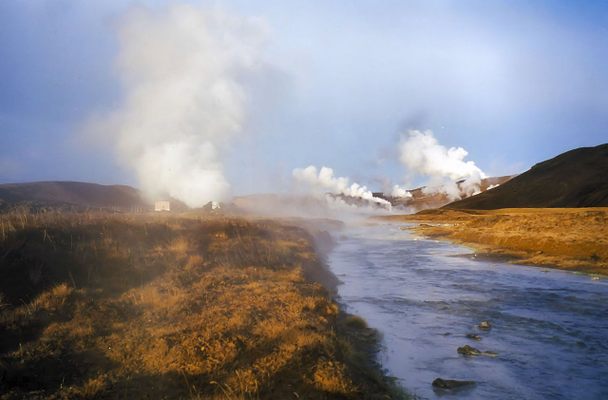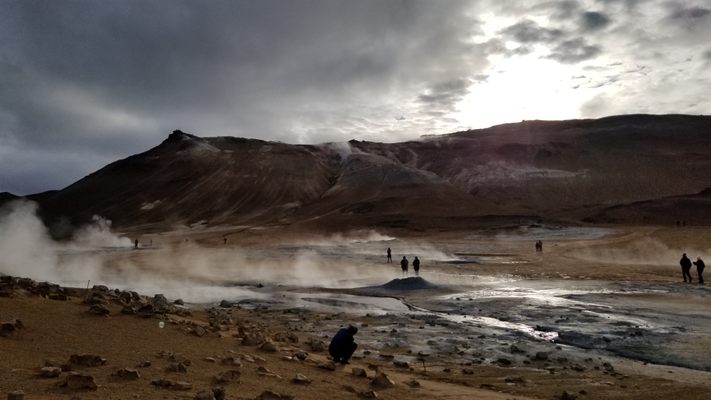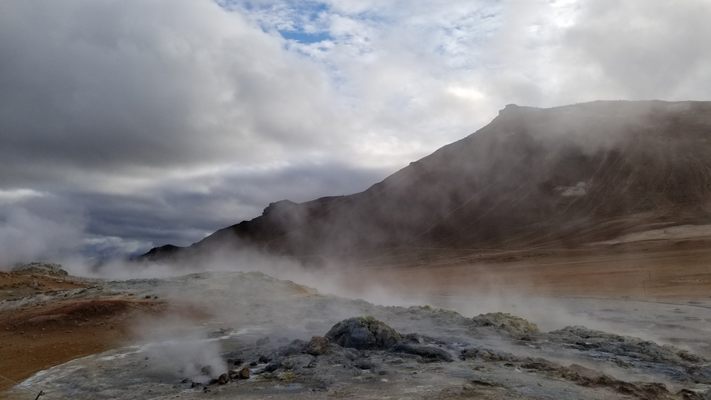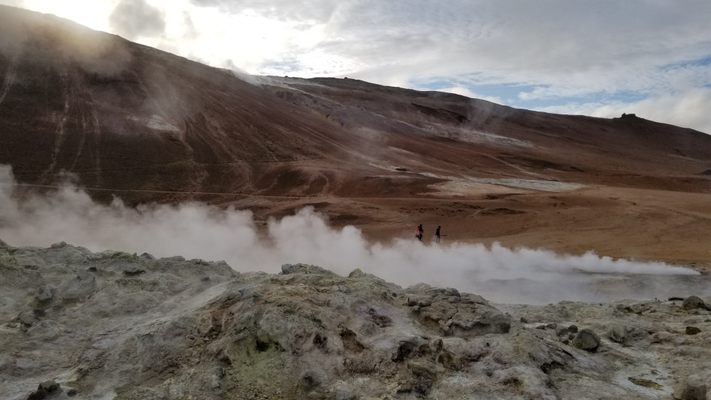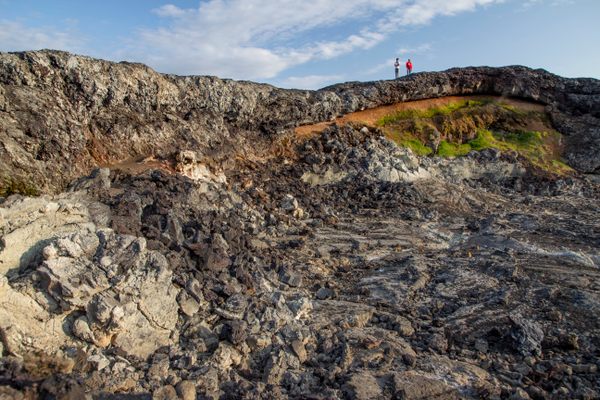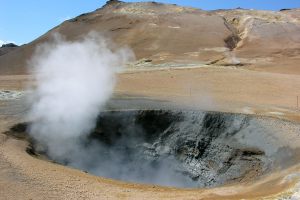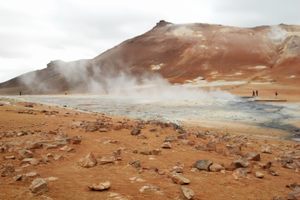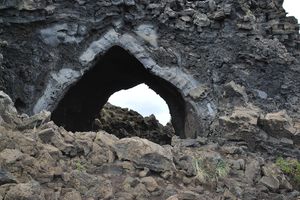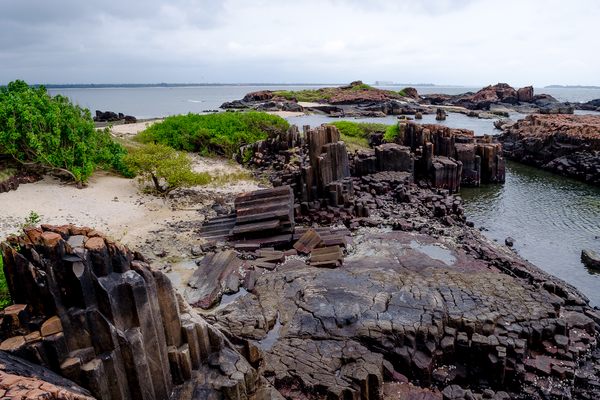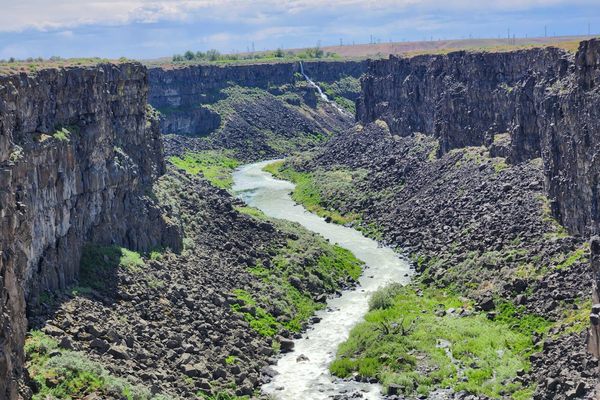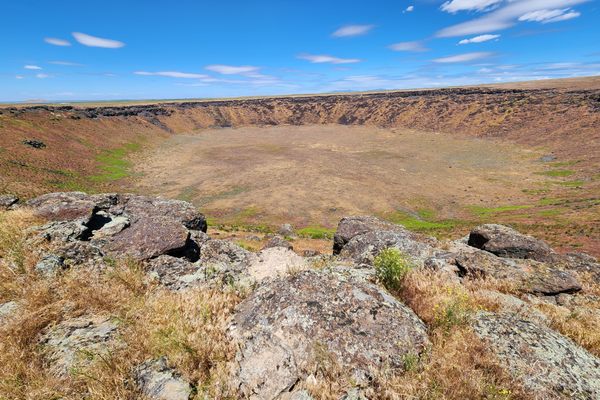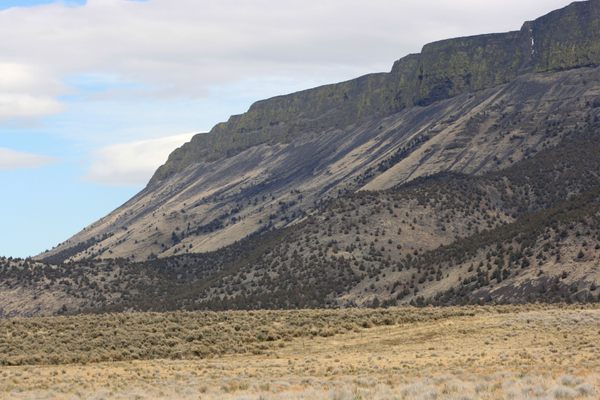About
Located on the other side of the Ring Road from Námaskarð, the Krafla Caldera is a 10km long, 2km deep active volcanic zone on the boundary between the American and Eurasian tectonic plates, and a key component of the eerily Martian-like landscape of the Myvatn area.
The Krafla zone comprises three sites: Leirbotn, the geothermal power station, Víti Maar, a volcanic crater ( its name means "Crater of Hell" in Icelandic), and Leirhnjúkur, a broad volcanic terrain with bubbling sulfuric pits and ashen lava fields. The Leirbotn plant has been active since the late seventies and is one of the five major power plants in Iceland that together supply about a quarter of the nation's energy.
Black and red lava fields, the unearthly bubbling pools of mud, volcanic craters, and gently wafting thermal plumes lend the Krafla zone a distinct sci-fi air, creating a scene where a primordial past appears to meet a sustainable future. It's a reminder that Iceland is a bit like a part of the Earth they forgot to finish: with its unique location on the Mid-Atlantic ridge, atop two tectonic plates that are slowly pulling apart from each other, the island is a platform where more Earth is constantly spewing forth and cooling on the surface.
A visit to Krafla is easily paired with its neighbor Námaskarð and rounded off with a plunge in Myvatn's own hot spring, the Myvatn Nature Baths, a pleasantly low-key alternative to Iceland's tourist-magnet, the Blue Lagoon. If you choose to hike in the region there are trails extending from Leirhnjúkur all the way past the Hverfjall crater to the Dimmu Borgir rock fields.
Once funding is complete, the Krafla zone will host the European Mars Analog Research Station (Euro-MARS), the projected third such research station designed by the Mars Society to observe living conditions for human beings in Mars-like conditions.
Related Tags
Know Before You Go
Directly off the Ring Road (Route 1), just east of Lake Myvatn.
Published
October 28, 2014
